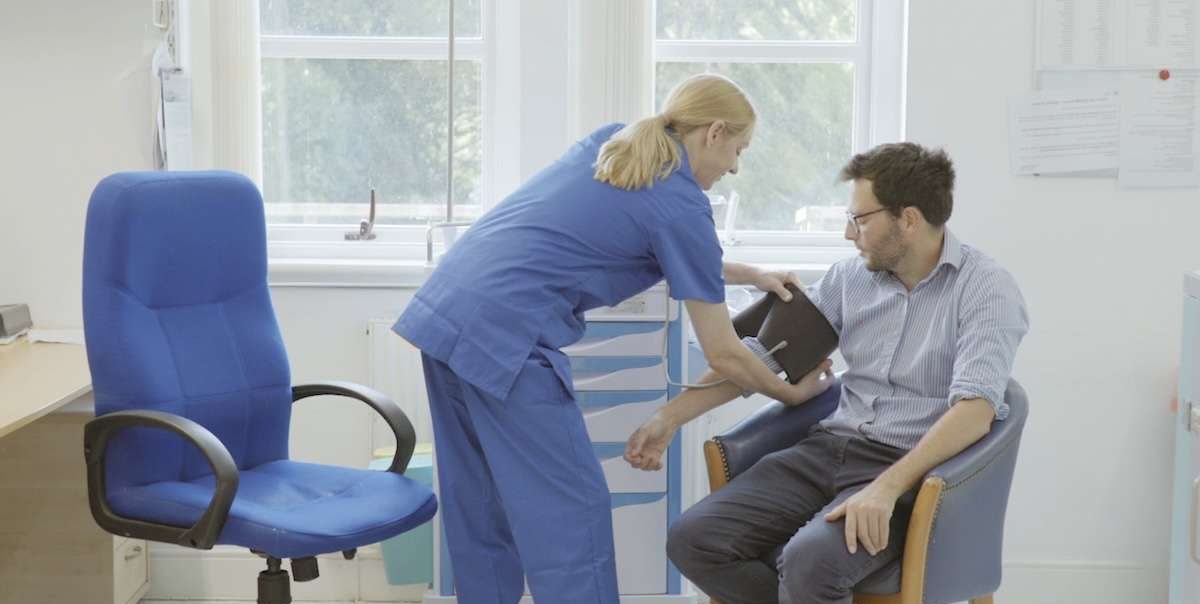
Residential Fentanyl Detox Treatment
Castle Craig offers medically managed fentanyl detox in a safe, residential setting, led by a skilled team of experienced doctors, nurses and therapists. Patients receive structured, private care that’s rooted in an evidence-based treatment approach, with therapeutic methods designed to support both physical and emotional recovery. We have long-standing experience in treating opioid addiction, and provide both 28-day care and extended stay options for fentanyl rehab treatment in a peaceful, nature-connected environment.
This article explains what to expect when detoxing from fentanyl, including answers to common questions such as how long it takes to detox from fentanyl, how long fentanyl withdrawals last and details about the fentanyl detox timeline. You’ll also find information about fentanyl detox symptoms, the stages of withdrawal, medications for fentanyl detox and the benefits of medical support in a residential setting. If you’re seeking professional treatment for yourself or someone you love, we encourage you to contact us on 01721 546 263 to find out more about our compassionate care for fentanyl dependency.
What is Fentanyl Detoxification?
Fentanyl detoxification is the process of clearing the drug from a person’s system after prolonged use. It’s often the first stage in treating fentanyl dependence, allowing the body to begin adjusting without opioids while managing the impact of withdrawal symptoms.
During opioid detox, people may experience both physical and psychological effects as fentanyl leaves the body. The process can be challenging due to the drug’s potency, but it is necessary to begin recovery. A safe fentanyl reduction plan and structured withdrawal support are essential at this stage.
What is a Medically Managed Fentanyl Detox?
A medically managed detox for fentanyl involves round-the-clock care from clinical professionals who monitor health, ease withdrawal symptoms and respond to complications. This type of detox takes place in a residential clinic under the supervision of doctors and nursing staff.
Medical fentanyl detox may include the use of prescribed medications, such as buprenorphine, to reduce discomfort and risk. This approach can be especially important when detoxing from fentanyl due to its high risk of severe withdrawal symptoms and relapse.

Start Your Recovery at a Residential Rehab Today
Difference Between Medically Managed Fentanyl Detox and Medically Supervised Fentanyl Detox
Medically managed fentanyl detox provides full-time, on-site medical care, with a multidisciplinary team guiding each stage of withdrawal. It typically takes place in a residential detox centre, with continuous monitoring, emotional support and potential medication-assisted treatment.
In contrast, a medically supervised fentanyl detox may involve less medical input and is sometimes delivered in outpatient settings. While still overseen by healthcare professionals, supervision is not always 24-hour, and the individual may return home between appointments or check-ins.
Free Fentanyl Dependency Evaluation
Castle Craig offers a free, confidential drug addiction assessment for those struggling with fentanyl or prescription opioid use. This initial conversation helps our admissions team understand your situation and determine whether inpatient fentanyl detox and treatment is the right next step.
Following the assessment, we can develop a personalised residential detox and recovery plan based on your clinical needs. The cost of fentanyl detox is included in our pricing, with no hidden fees. To speak with someone today, call us on 01721 546 263.
Free Fentanyl Addiction Assessment
Taking the first step and asking for help can feel daunting, but our team is here to assist you.
Benefits of Inpatient Residential Fentanyl Detox and Withdrawal Treatment
Detoxing from fentanyl at home can be dangerous due to the severity of withdrawal symptoms and the lack of medical intervention. Residential fentanyl detox offers a safer alternative by providing expert care, continuous monitoring and a controlled environment that reduces the dangers of unsupervised opioid withdrawal.
The benefits of medically managed fentanyl detox extend beyond safety. Patients gain access to specialised treatments tailored to their individual needs, including medication-assisted detox and psychological support where required. This structure aims to minimise complications and relapse risks, supporting a more comfortable and effective withdrawal experience. Some of these benefits include:
-
Round-the-Clock Medical Support for Fentanyl Withdrawal
Inpatient fentanyl detox provides 24-hour medical care to monitor withdrawal symptoms and respond immediately to any complications. This continuous supervision can be vital given the intensity and unpredictability of fentanyl withdrawal.
Medical staff can use evidence-based treatment and medications to ease symptoms like muscle pain, nausea and anxiety. Having professionals on hand around the clock allows for swift adjustments in care, which greatly improves patient safety and comfort during fentanyl detox.
-
Secure and Supportive Setting for Detoxing from Fentanyl
A secure and private environment for fentanyl withdrawal protects patients from triggers and external stress during a difficult time. Residential settings encourage emotional stability and a sense of safety during fentanyl detox.
At Castle Craig, patients can benefit from a peaceful, rural location that combines privacy with professional support. Our calm surroundings and caring staff work together to create a supportive atmosphere that encourages healing at every stage.
-
Individually Tailored Plans for Gradual Fentanyl Reduction
Fentanyl detox plans should be personalised to each individual’s dependency level, health status and withdrawal symptoms. Gradually reducing fentanyl dosage helps to reduce discomfort and dangerous side effects.
Carefully managed tapering schedules allow the body to adjust slowly, lowering the risk of severe withdrawal symptoms. Personalised approaches can therefore improve detox experiences and prepare patients for the next steps in their fentanyl rehabilitation journey.
-
Comprehensive Care for Physical and Mental Withdrawal Symptoms
Fentanyl detox impacts both the body and mind, so treatment must address physical discomfort and psychological distress simultaneously. Effective management of symptoms like pain, anxiety, depression and cravings is highly important during the withdrawal phase.
Castle Craig offers integrated care combining medical treatment with psychological therapies. Our holistic approach to opioid addiction treatment in the UK supports the whole person through detox and beyond, helping patients navigate both physical and emotional challenges of coming off fentanyl.
-
Safe, Medication-Assisted Fentanyl Detox in a Clinical Setting
Medication-assisted treatment (MAT) in a fentanyl detox uses approved drugs to ease withdrawal symptoms safely. Such methods can improve patient comfort and reduce risks associated with stopping fentanyl abruptly.
Clinical detox centres provide a controlled environment where medication dosages are carefully regulated by healthcare professionals. Close monitoring enhances safety and helps patients gradually overcome fentanyl dependence with protection, structure and support.
-
Medical Guidance for Tapering Off Fentanyl Effectively
Tapering off fentanyl requires expert medical oversight to balance dosage reductions and symptom management. Sudden stops in use can cause severe withdrawal, so professional guidance plays a key role.
Our clinicians at Castle Craig develop safe fentanyl reduction plans based on scientific evidence and individual patient needs. Personalised tapering minimises withdrawal severity and supports a smoother detox experience.
-
Minimised Relapse Risk in a Structured Detox Environment
Detoxing in a dedicated, inpatient location can reduce the risk of relapse by providing constant care and limiting access to fentanyl or other substances. Ongoing support helps patients manage cravings and triggers away from the temptations of home life.
Structured detox environments also help patients focus fully on recovery, building skills and resilience necessary for sustained abstinence. Comprehensive therapies can encourage understanding and motivation to prevent potentially dangerous relapse post-treatment.
-
Seamless Progression Into Long-Term Fentanyl Rehab
Detox represents just the first step in recovery; continued drug addiction treatment is essential for ongoing progress. Inpatient detox centres often provide integrated pathways into extended rehab and aftercare, rather than discharging patients once detox is complete.
Castle Craig offers smooth transitions from fentanyl detox to ongoing residential rehab and relapse prevention. Our continuity of care supports all patients throughout their recovery journeys, promoting lasting and fulfilling sobriety.
Private Medically Managed Fentanyl Detox Centre Near Me
Accessing a safe and supportive environment for fentanyl detox can be immensely reassuring for those ready to begin recovery. If you’re looking for a private, medically managed detox centre in the UK, Castle Craig provides dedicated care in a peaceful, restorative space.

Contact Castle Craig Residential Drug Detox Centre
Castle Craig is located in West Linton, Edinburgh, United Kingdom, EH46 7DH. Set within the scenic Scottish Borders, our residential detox centre offers a peaceful and discreet location where patients can begin withdrawal and recovery surrounded by nature and specialist support.
Find Us
01721 546 263
info@castlecraig.co.uk
Castle Craig,
West Linton, Edinburgh, United Kingdom, EH46 7DH
Contact us to request a call from a member of our admissions team. We can answer your questions about detox for fentanyl or other opioids and explain more about our subsequent fentanyl addiction treatment.
-
How to Find a Private Fentanyl Detoxification Centre Near You
If Castle Craig isn’t within your travel range, there are steps you can take to find a reputable fentanyl detox clinic near you. Start with the guidance below to help narrow your search for safe, medically managed opioid detox services:
- Search for “Private Fentanyl Detox Near Me” or Include Your Location: Use online search terms such as “Private inpatient fentanyl detox centre near me”, “Fentanyl detox clinic in UK” or “Medically managed fentanyl detox in Scotland.”
- Look for Clinical Oversight and 24-hour Support: Confirm that the facility offers round-the-clock supervision with access to medical staff experienced in opioid withdrawal.
- Read Reviews from Past Patients: Look for genuine testimonials or feedback from people who have gone through detox at the facility. Their experiences can offer insights into the level of care.
- Consider What’s Included in the Detox Programme: Check whether accommodation, medical oversight, psychological support, meals and aftercare planning are part of the overall service.
- Ask About Detox Costs and Payment Options: Make sure the fentanyl detox clinic provides transparent pricing and that you understand the financial commitment involved.
- Check if They Accept Health Insurance for Fentanyl Detox: Some rehab centres may work with private health insurance policies, but patients are usually responsible for confirming coverage.
Find Out About Our Residential Fentanyl Detox Treatment
Castle Craig offers free fentanyl addiction assessments as part of our admissions process. This evaluation helps us understand your individual needs and plan the most appropriate care for your recovery journey.
We provide several treatment options, including 4-week, 6-week and 12-week stays, all of which can include medically managed fentanyl detox. Call us on 01721 546 263 to discuss how our detox and rehab support can help you regain control of your life.
Signs, Symptoms and Effects of Fentanyl Withdrawal & Detoxification
Fentanyl withdrawal can be intense, with a wide range of symptoms that vary in severity depending on the level of dependence. Side effects may begin just hours after the last dose and evolve over several days. Below are some common signs and effects people may experience when detoxing from fentanyl, though there may be many others that are not listed.
-
Early Signs of Fentanyl Withdrawal
In the first 6 to 24 hours of stopping fentanyl, people may start experiencing initial withdrawal symptoms. These early indicators can appear quickly and mark the beginning of the fentanyl detox timeline.
- Heightened anxiety: Feelings of nervousness or panic often arise early as the body starts to adjust to the absence of fentanyl.
- Excessive sweating: The body may begin to sweat excessively, even in cool conditions, as it reacts to withdrawal.
- Frequent yawning: Repeated yawning is a neurological response seen in many types of opioid withdrawal.
- Runny nose: Increased nasal discharge can mimic cold-like symptoms as early fentanyl withdrawal sets in.
- Restless behaviour: Many individuals find it hard to sit still or relax as physical discomfort grows.
-
Moderate to Severe Symptoms of Fentanyl Withdrawal
Between 24 and 72 hours into the fentanyl withdrawal timeline, symptoms tend to intensify. Medically managed fentanyl detox can reduce the risks associated with this stage.
- Intense muscle aches: Widespread pain in the arms, legs and back may develop.
- Severe nausea: Many people feel extremely sick and may struggle to keep food down.
- Watery diarrhoea: The digestive system often reacts strongly, increasing the risk of dehydration.
- Abdominal cramps: Painful spasms in the stomach are common during this phase of fentanyl detox.
- Rapid heartbeat: Cardiovascular symptoms like a racing pulse or palpitations may emerge.
-
Psychological Effects of Fentanyl Withdrawal
As detox from prescription drugs like fentanyl continues, psychological symptoms can become more noticeable. These often emerge alongside physical signs and can affect mood, behaviour and mental clarity.
- Deep depression: A profound sense of hopelessness may arise as dopamine levels shift.
- Extreme irritability: Emotional outbursts or sudden agitation are common during fentanyl withdrawal.
- Sudden mood swings: Unpredictable emotional states may occur from hour to hour.
- Intense cravings for fentanyl: Craving fentanyl is one of the most persistent symptoms during detox.
- Sleep disturbances: Difficulty falling or staying asleep is a common psychological effect of fentanyl withdrawal.
-
Physical Signs and Symptoms During Fentanyl Detoxification
Throughout the fentanyl detoxification process, the body undergoes a range of physical reactions. Symptoms often overlap with moderate withdrawal but reflect how the nervous system is adapting to the absence of fentanyl.
- Shaking or chills: Cold sensations and body tremors are frequent physical symptoms of fentanyl withdrawal.
- Raised goosebumps: The skin may show visible signs of discomfort, such as goosebumps or shivering.
- Body tremors: Involuntary shaking of hands, limbs or other parts of the body can be distressing.
- Dilated pupils: Widened pupils are a key indicator of opioid withdrawal.
High blood pressure: Blood pressure may rise as the body attempts to re-regulate itself.
-
Long-Term Effects Without Proper Fentanyl Detox Support
Without professional fentanyl dependence treatment or detox support services, withdrawal symptoms can linger or worsen over time. Long-term effects of fentanyl detox can disrupt daily life and increase relapse risk.
- Persistent anxiety: Ongoing fear or worry may continue without proper mental health support.
- Chronic insomnia: Sleep issues may remain even weeks after stopping fentanyl.
- Relentless cravings: Without treatment, urges to use fentanyl can persist and intensify.
- Emotional instability: Mood may remain unpredictable, making relationships and work difficult.
- Overdose risk: A lowered tolerance after withdrawal increases the chance of overdose if relapse occurs.

Medications Used for Fentanyl Detoxification
Medication may or may not be part of a fentanyl detox process. Its use depends on the individual’s needs, severity of addiction and medical history. The following are common medications that could be used during fenatanyl detoxification. Some carry risks such as dependency or serious side effects and must only be administered under professional supervision to ensure safety and effectiveness.
- Methadone (for easing opioid withdrawal symptoms): Methadone is a long-acting opioid that can help to reduce withdrawal symptoms by gently activating opioid receptors, easing discomfort and preventing cravings. Methadone carries a risk of dependence and overdose if not carefully dosed and monitored by professionals.
- Buprenorphine (helps with reducing cravings and withdrawal): Buprenorphine partially activates opioid receptors to decrease cravings and withdrawal severity. It has a lower risk of misuse but still requires clinical oversight to prevent complications and dependency..
- Naltrexone (for blocking opioid effects post-detox): Naltrexone blocks opioid receptors to prevent fentanyl’s effects after detox, supporting abstinence. It must only be started once opioids have cleared the system to avoid causing withdrawal.
- Clonidine (for anxiety, sweating and agitation): Clonidine calms the nervous system, reducing anxiety, sweating and agitation during fentanyl detox. It requires monitoring to manage side effects such as low blood pressure.
- Lofexidine (used to manage physical withdrawal discomfort): Lofexidine helps alleviate physical symptoms like muscle aches and restlessness. Professional dosing is essential to avoid side effects like dizziness and hypotension.
- Gabapentin (for nerve pain and anxiety support): Gabapentin is not officially licensed in the UK for opioid detox, but it’s often prescribed off-label by clinicians to help ease symptoms like anxiety, restlessness and nerve pain during withdrawal, based on clinical judgement and patient need. It should always be given under supervision to avoid misuse and side effects.
- Ondansetron (to control nausea and vomiting): Ondansetron can be effective in managing nausea and vomiting during detox. It’s typically well-tolerated but should be used as directed by healthcare staff.
- Loperamide (Imodium – to ease stomach upset): Loperamide treats diarrhoea and cramps during the fentanyl withdrawal timeline. Though available over the counter, misuse can cause serious heart issues, so clinical guidance is advised.
Medications like methadone, buprenorphine and lofexidine require strict medical oversight due to risks of dependence, overdose or cardiovascular side effects. Only healthcare professionals should prescribe and monitor these during fentanyl detox.
At Castle Craig, our approach to the use of fentanyl detox medications is conducted with the highest level of responsibility so that they do not result in a new dependency. We understand that this may be a concern for some patients, and we are here to assure you that detox medicines are prescribed only when clinically necessary and are closely managed under the care of our Consultant Psychiatrist and trained medical staff.
Our goal is to alleviate fentanyl withdrawal symptoms safely while focusing on your overall recovery and the goal of abstinence. By using evidence-based protocols and regularly assessing your progress, we only use detox medications as a short-term tool to support your transition into sobriety, always prioritising your long-term health, well-being and abstinence.

Contact Castle Craig Today
Fentanyl addiction can affect anyone, regardless of background or circumstances, due to its high potency and addictive nature. Recognising the signs early and seeking professional help is important for recovery and long-term well-being.
If you or a loved one needs support, call us today on 01721 546 263. We are here to listen and guide you through this difficult time.
Does Health and Medical Insurance Cover Fentanyl Detoxification Treatment in the UK?
Yes, health and medical insurance can cover fentanyl detoxification treatment, but this largely depends on the specific coverage levels and policies of the insurance providers. It’s important to review your individual plan to understand what is included.
If treatment is authorised by your insurer, Castle Craig accepts private health and medical insurance for fentanyl detox and subsequent rehab treatment. We recommend contacting your provider directly to confirm coverage at our facility before beginning the admissions process.
How Much Does Residential Fentanyl Detox Cost?
Residential fentanyl detox alone in the UK typically ranges from £1,000 to £6,000 for a 7 to 10-day period. However, detox is generally recommended as part of a longer treatment plan that includes therapy and support, which these costs do not cover. Daily residential programme costs range from £650 to £1,500, with weekly fees from £4,500 to £10,000.
The cost of fentanyl detox can vary based on individual treatment needs and the duration of the rehab programme it’s included in. Factors like accommodation type and additional therapies may also influence the overall price. To get a clear breakdown of our all-inclusive pricing, call Castle Craig on 01721 546 263 to speak to an advisor.
Fentanyl Detox Timeline and How Long It Takes
Fentanyl detox usually marks the beginning of a comprehensive fentanyl rehab journey. While the detox phase focuses on safely managing withdrawal symptoms, it’s important to complete a full rehab programme if recommended by healthcare professionals for sustained recovery. Below, we outline typical fentanyl detox timelines and what to expect during each stage.
-
Stage 1: Early Withdrawal Symptoms (6–12 Hours After Last Dose)
Early fentanyl withdrawal symptoms generally begin within 6 to 12 hours after the last dose. During this stage, individuals may experience mild physical and psychological signs as the body starts reacting to the absence of the drug.
Fentanyl withdrawal symptoms in the initial phase often include anxiety, restlessness, sweating and yawning. Though uncomfortable, these signs are typically manageable with medical support and careful monitoring.
-
Stage 2: Peak Fentanyl Withdrawal Symptoms (24–72 Hours)
The peak fentanyl withdrawal phase usually occurs between 24 and 72 hours after the last dose, with symptoms intensifying and reaching their highest severity. Physical discomfort and psychological distress become more pronounced.
Common peak fentanyl detox side effects include intense muscle aches, nausea, diarrhoea, abdominal cramps and rapid heartbeat. Medical intervention during this stage may be critical to manage symptoms safely and reduce the risk of complications.
-
Stage 3: Subsiding Symptoms and Stabilisation (3–7 Days)
Between 3 and 7 days after stopping fentanyl, withdrawal symptoms generally begin to lessen in intensity, and the body starts to stabilise. Physical symptoms of fentanyl detox gradually improve, but some psychological effects may linger.
Throughout this phase, ongoing medical and therapeutic support can help patients manage lingering cravings, mood swings and sleep disturbances. This transitional period is crucial for preparing individuals for longer-term rehab and relapse prevention.

Related Guides on Medically Managed Residential Detox
Detox Centre | Inpatient Detox | Alcohol | Drugs | Cocaine | Heroin | Crystal Meth | Valium | Tramadol | Benzodiazepines | Xanax | Codeine | Opioid | Ecstasy | Morphine | Amphetamine | Cannabis
Inpatient Medically Managed Fentanyl Detox Treatment Admissions Process
Starting inpatient fentanyl detox should involve a reassuring, clear and supportive admissions process designed to address personal needs safely and effectively. From initial assessment to discharge planning, each step is managed with professional care to help you begin and sustain recovery confidently.
- Private Consultation and Initial Fentanyl Use Assessment: A confidential conversation to understand your history with fentanyl, current use and medical background, helping shape the best detox approach.
- Clinical Evaluation and Suitability for Detox Admission: A thorough medical review determines your health status and readiness for inpatient fentanyl detox, ensuring safety throughout the process.
- Payment Options and Insurance Coordination: Discuss available payment methods and verify if your health insurance covers treatment, assisting with financial planning for your care.
- Inpatient Admission Process and Orientation: Upon admission, you’ll be welcomed and oriented to the facility, staff and what to expect during your fentanyl detox plan.
- Continuous Medical Supervision and Discharge Planning: Ongoing monitoring during detox supports your well-being, with a clear plan for safe discharge or transition to further fentanyl rehab treatment if needed.
Questions About Detox for Fentanyl?
Contact us to discuss your treatment needs with a licensed clinician.
Find Out About Our Synthetic Opioid Detox Treatment
Castle Craig offers a private, 11-bed detox centre onsite, providing a secure and supportive environment for synthetic opioid detox. Our focus is on compassionate care combined with expert medical support to help you through the detox process safely.
We create tailored treatment plans based on individual needs and provide clear, all-inclusive pricing for residential detox and rehab costs. Contact us on 01721 546 263 or fill out the form below to learn how we can support your courage on your fentanyl recovery journey.
Free Fentanyl Addiction Assessment
Compassionate, expertly delivered evidence-based practices and a patient-centred approach are at the heart of our treatment model. Request a call-back from one of our professionals on any day of the week.
-
Statistics on Fentanyl in the UK
- In 2021, the fentanyl death rate in England was 0.223 per 100,000. Despite the rate of synthetic opioid-related deaths in England being less than the US, the recent increase is concerning and requires close monitoring and the provision of services.
- The UK is training Border Force dogs to detect a range of nitazenes and fentanyl – currently the only country in the world doing so – to stop these substances entering the country amid growing concerns.
- Fentanyl has recently emerged in the UK heroin street market, particularly in the North East of England, and is considered a contributory factor in some heroin-associated deaths.
- Fentanyl is significantly more potent than other opioids, being up to 50 times stronger than heroin and 100 times stronger than morphine.
- As of September 2024, fentanyl-related deaths in the UK remain relatively low compared to other synthetic opioids like nitazenes. Between June 2023 and May 2024, there were 14 deaths related to fentanyl misuse, with 11 of these cases also involving nitazenes.